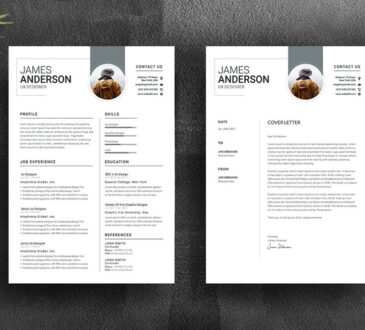
Planning to have a career related to software development is a smart decision in today’s world. With data being such a valuable asset for businesses of all kinds, almost all sectors require the assistance of software engineers and developers to help them operate and grow.
Skills commonly taught in software engineering programs
Should you decide to study or improve your current skill set, you’ll find that most of the skills outlined below are taught in quality software engineering programs. Luckily, where you study is flexible, and online training is a possibility.
Coding
You need to understand source codes to use when writing a software program. You won’t necessarily learn about all of them, and throughout your career, you may focus and become specialized in using a specific coding language.
The most prominent coding languages used in today’s industry are:
- CSS (Cascading Style Sheets)
- JavaScript
- HTML (HyperText Markup Language)
- C++
- Java
- Python
- SQL (Structure Query Language)
Artificial intelligence
According to research, by 2030 at least one out of every 10 cars will have self-driving technology. Also, AI is able to increase productivity exponentially. These are just two of the reasons why experts believe that by 2027, the AI market could be worth over $400bn. This shows how valuable knowledge about AI, such as machine learning, can be.
In practice, someone who engineers AI combines elements of software engineering, systems engineering, computer science and other related fields. It is possible to distinguish between the role of an AI engineer and a software engineer, but many skills, such as an understanding of code and algorithms, do overlap.
Having skills in AI development as part of the curriculum when studying to become a software engineer gives you an insight into whether this is a niche you want to become more involved in. This knowledge also makes it easier to transition and acquire additional training to specialize in the AI field.
Data structures and algorithms
A data structure is a data organization, management and storage format. There are different types of structures, and software engineers figure out which option will work best for a specific code type or program.
An algorithm is essentially a set of rules. These guidelines will dictate how a specific task must be performed, and will use information from the data structure.
For both of these tasks, software engineers must make decisions about which structures and rules will best achieve the goal of the program, or suit a client’s needs. It is worth acquiring more knowledge of different structures and algorithms so that you can make informed decisions and pick the best combinations for each scenario, or program, you’re working on.
Database management
It is important for end users to be able to efficiently manage their data. As a software engineer, you must understand how to organize this data in a structured manner and enable features such as adding new lines of data or searching for specific data.
With cybercrime on the rise, another important aspect here is knowing how to keep a database secure.
Development frameworks
During your training, you’ll learn about valuable tools called development frameworks. You can consider them as blueprints and they help software engineers create products such as apps or websites.
By increasing their knowledge of development frameworks, software engineers can complete tasks more quickly and efficiently. For example, thanks to a framework, you’ll have existing code to which you can add. This code can either be your own, which you created previously, or it can be obtained from another source, such as another software developer or engineer.
Different computer systems and operating systems will require different frameworks, so it is important to understand them.
Software testing
As with many products, the testing phase of software is a vital part of any project. Software engineering students must learn the various types of tests that help to ensure that a product will have optimal functionality once it’s launched for a customer or project.
Testing can be focused on units, such as code sections, or you can test whether a new program will work well with other existing software. There’s also the matter of testing whether the program actually does what it was originally intended for.
Software developers and software engineers who form part of a development team must understand the various types of testing. Their insight empowers them to receive feedback from professionals, clients and other parties and then make appropriate changes to the software, to improve outcomes.
Version control
It’s inevitable that during and after developing a program, software developers and engineers will make changes to the code. This can be to satisfy the requirements after testing, or to update programs to newer versions as the demands of the end users change. Unfortunately, it carries the risk of damaging the entire system, and for this reason, software engineers must learn about version control.
Version control is also called source control and covers the practice of managing all changes to the original code. It makes it possible to track changes and return the system to a previous version if necessary.
Software engineer vs software developer – is there a difference?
It’s worth noting that while the responsibilities and skill sets required by these roles do overlap, there are some key differences between software engineers and software developers. These differences include scope of work and contribution to projects.
A software developer, for example, often has more of a specialized focus within a bigger project, including coding, testing and debugging a particular feature of an overall project. Conversely, software engineers are better known for their comprehensive approach to the overall software development lifecycle, including gathering initial requirements and completing ongoing software maintenance.
Education and experience requirements also differentiate the two roles, with a software engineer typically requiring a higher level of conventional education than a software developer. But, regardless of whether you aim to become a software developer or software engineer, obtaining a master’s degree will equip you with the necessary skills to succeed in your career. Baylor University’s online Masters in Computer Science – Software Engineering program, for example, is an example of a high-quality educational foundation. Tailored to aspiring software engineers with a passion for innovation and a curiosity for the world of modern technology, the curriculum covers applied artificial intelligence, advanced data communications and advanced algorithms to name just a few topics.
Final thoughts
For anyone thinking of entering the world of software development, whether as a developer or engineer, you’re becoming part of an exciting industry. Obtaining knowledge of various concepts in this field will serve as a firm foundation to build a career, regardless of what you decide to specialize in at a later stage.




